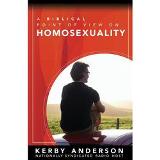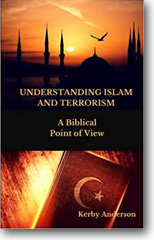Steve Cable examines the faulty reasoning and interpretation of the Bible in Kurt Eichenwald’s Newsweek article “The Bible: So Misunderstood It’s a Sin.”
Dissecting the Bible by Focusing on Nits
Recently, New Testament scholar, Dr. Daniel Wallace, addressing our strong confidence in our modern translations, mentioned others presenting a false view of this situation. One example, The Bible: So Misunderstood It’s a Sin by Kurt Eichenwald{1}, appeared in Newsweek. This article presents arguments intended to undermine the New Testament. Let’s evaluate some of these arguments to be better equipped in sharing the truth.{2}
 Eichenwald begins by parroting negative stereotypes about American evangelicals. Adding rigor to his rant, he states, “A Pew Research poll in 2010{2} found that evangelicals ranked only a smidgen higher than atheists in familiarity with the New Testament and Jesus’s teachings.”{4}
Eichenwald begins by parroting negative stereotypes about American evangelicals. Adding rigor to his rant, he states, “A Pew Research poll in 2010{2} found that evangelicals ranked only a smidgen higher than atheists in familiarity with the New Testament and Jesus’s teachings.”{4}
He referred to a table showing the average number of questions out of twelve answered correctly. However, only two of the twelve related to the New Testament and none to Jesus’s teachings.{5} Two questions are not enough to evaluate someone’s knowledge of the New Testament, But, for the record, the two questions were “Name the four gospels” and “Where, according to the Bible, was Jesus born?” 53% of those professing to be born again answered these correctly versus 20% of atheists. Apparently to Eichenwald, a “smidgen higher” must mean almost three times as many.
Eichenwald spends two pages bemoaning the translation problems in the New Testament. But as pointed out by Dr. Wallace and others, his critique really serves to highlight the excellence of today’s translations. The areas he points out as having questionable additions in the text are clearly marked in all of today’s popular translations{6} and if removed make no difference in the overall message of the New Testament (i.e. the woman caught in adultery in John and snake handling in Mark).
He also lists three short passages, claiming they did not appear in earlier Greek copies. Upon examination, we find that one of those passages does not appear in modern translations. The other two do appear in the translations. Why? Because they appear in numerous early Greek manuscripts.{7} Once again his scholarship is found wanting.
All scholars agree there are variations between ancient manuscripts from different areas but they do not change the message. As Wallace points out, “We are getting closer and closer to the text of the original. . . . The New Testament has more manuscripts that are within a century or two of the original than anything else from the Greco-Roman world. If we have to be skeptical . . . , that skepticism . . . should be multiplied one thousand times for other
Greco-Roman literature.”{8}
Supposed Biblical Contradictions
Eichenwald continues attacking the Bible with nine different topics he claims reveal contradictions in the biblical record. Let’s examine three of them to see if his arguments have substance.
First, he claims there are three different creation models, stating that “careful readers have long known that the two stories of Genesis 1 and 2 contradict each other.”{9}
However, a clear-headed examination sees chapter 1 describing the overall creation while chapter 2 talks about the creation of Adam and Eve. As commentators explain, “what follows Genesis 2:4 is not another account of creation but a tracing of events from creation through the fall and judgment.”{10}
In his third creation model “the world is created in the aftermath of a great battle between God and . . . a dragon . . . called Rahab.”{11}
Reading the relevant verses shows no creation story but rather the creature Rahab representing Egypt. Job 9:13 says “under (God) the helpers of Rahab lie crushed.” Some speculate this could relate to the Babylonian Creation Epic. Even if this speculation were true, rather than a third creation story one would say this reference tells us God destroys all idols raised up by others.
Eichenwald’s claim of three different creation models is an illusion.
His second claim states the Gospel of John was written “when gentiles in Rome were gaining dramatically more influence over Christianity; that explains why the Romans are largely absolved from responsibility for Jesus’s death and blame instead is pointed toward the Jews,”{12} implying the other gospels put much of the blame on the Romans.
Examining his claim, in Luke we read, “The chief priests . . . were trying to find some way to execute Jesus.” While
the Roman governor did not find Jesus guilty of anything worthy of death.{13} In Acts, Peter squarely places the responsibility onto the Jewish leaders and nation.{14} We find similar verses in Matthew{15} and Mark{16}. All the gospels place the blame on the Jewish nation. There is no shift in perspective in John.
In a third supposed contradiction Eichenwald writes, “As told in Matthew, the disciples go to Galilee after the Crucifixion and see Jesus ascend to heaven; in Acts, written by Luke, the disciples stay in Jerusalem and see Jesus ascend from there.”{17}
The gospel of Matthew ends saying nothing about Jesus ascending to heaven. In Acts, Luke says the Lord was with His disciples over a forty-day period and could have easily traveled from Jerusalem to Galilee and back.
Not surprisingly, his other six so-called “contradictions” all fail to hold up when one examines the Scriptures.
Faulty Interpretation Part 1
Eichenwald wants to show that what we think the Bible teaches about homosexuality is not what God intended. He begins by pointing out “the word homosexual didn’t even exist until . . . 1,800 years after the New Testament was written . . . these modern Bibles just made it up.”{18}
But this could be said of many English words used today. A respected dictionary of New Testament words{19} defines the Greek word he questions as “a male engaging in same-gender sexual activity, a sodomite. . .”
He then tells us not to trust 1 Timothy when it lists homosexuality as a sin because “Most biblical scholars agree that Paul did not write 1 Timothy.”{20}
The early church fathers from the second century on and many contemporary scholars{21} do not agree it is a forgery.{22} Regardless, the same prohibition appears in other epistles and not just in Timothy.
Eichenwald points out Romans, Corinthians and Timothy discuss other sins in more detail than homosexual behavior. He writes, “So yes, there is one verse in Romans about homosexuality . . . and there are eight verses
condemning those who criticize the government.”
Most people understand that explaining our relationship to the government is more complex than forbidding homosexuality which is clearly understood.
He claims people are not banished for other sins such as adultery, greed, and lying.
But if you proclaimed you practice those actions regularly and teach them as truth, your church is going to remove you from any leadership position. They should still encourage you to attend worship services out of a desire to see God change your heart.{23} Mr. Eichenwald would be surprised to learn that most evangelical churches handle issues with homosexuality in the same way.
Then he declares, “plenty of fundamentalist Christians who have no idea where references to homosexuality are in the New Testament . . . always fall back on Leviticus.”{24}
Personally, I have never run into another church member who was unfamiliar with the New Testament, but knew the details of Leviticus.
In summary, Eichenwald believes we should declare homosexuality is not a sin and those who practice it should be honored as leaders within the church. He does not suggest that we treat any other sins that way. He does not
present a cogent argument that the New Testament agrees with his position. He is saying that we should ignore biblical teaching. But, we really do love those struggling with homosexual behavior and we want to help them gain freedom from those lusts just as much as someone struggling with opposite sex issues.
Faulty Interpretation Part 2
To strengthen his position on homosexuality, Eichenwald calls out “a fundamental conflict in the New Testament – arguably the most important one in the Bible.”{25} As Christians, are we to obey the Mosaic Law or ignore it?
He claims, “The author of Matthew made it clear that Christians must keep Mosaic Law like the most religious Jews, . . . to achieve salvation.”{26} He says this is contrary to Paul’s message of salvation through grace not works.
What a mistaken understanding. In Matthew, Jesus explains that to enter God’s kingdom “our righteousness must surpass that of (the most religious Jews){27}.” We must not get angry, call people names, or lust even once. In fact, “You are to be perfect, as your heavenly Father is perfect.”{28} Jesus clearly taught we cannot be good enough. Only through His sacrifice can we be made righteous.
In Acts 15, some believers with Pharisaical backgrounds brought the Mosaic Law up to the apostles. Peter told them, “Why do you put God to the test by placing upon the neck of the disciples a yoke which neither our fathers nor we have been able to bear? . . . we are saved through the grace of the Lord Jesus, in the same way as (the Gentiles) also are.”{29} The apostles and the whole church agreed to send the Gentiles word that they were not required to
follow the Law.
Eichenwald is right: we are not required to follow the Law. The New Testament is very careful to identify actions and attitudes which are sin so may try to avoid them. This truth is why sexual sins are specifically mentioned in the New Testament.{30} Even in Acts 15, the apostles tell Gentile Christians to abstain from fornication{31}, a term covering all sexual activity outside of marriage.
Eichenwald also castigates us for disobeying the biblical teaching about government. He says Romans has “eight verses condemning those who criticize the government.”{32} Pat Robertson sinned by stating, “We need . . . to pray to be delivered from this president.”
Actually, Romans says, “Let every person be subject to the governing authorities. . . . the person who resists such authority resists the ordinance of God.”{33} We are not required to say good things about the government, but rather to obey the law. Our Bill of Rights states that “Congress shall make no law . . . abridging the freedom of speech.”{34} So, if we do not voice our opinions about our government, we are not availing ourselves of the law established by our governing authorities.
Faulty Interpretation Part 3
As we examine popular arguments against the Bible, we will conclude by looking at prayer. In his Newsweek article, Kurt Eichenwald castigates a Houston prayer rally{35} saying, “(Rick) Perry . . . boomed out a long prayer asking God to make America a better place . . . babbling on . . . about faith and country and the blessings of America.” He claimed Perry “heaped up empty phrases as the Gentiles do.”
In reality, Perry prayed succinctly for about two minutes with no empty phrases.
Eichenwald explains, Perry is just an example of our error. Most Christians are disobeying by praying in front of people. Jesus told us, “Whenever you pray, do not be like the hypocrites, for they love to stand and pray . . . so that they may be seen by others.”
But someone can speak a prayer before others without being a hypocrite. Jesus does tell us to make our prayers a personal conversation with our God. But Jesus prayed often before synagogue attenders, in front of His disciples,{36} and before over 5,000 people.{37} Those times, although numerous, were less than the time He spent praying alone as should be true for us.
Eichenwald states we should repeat the Lord’s prayer verbatim.
But in Matthew, Jesus gave an example of how to pray, not a set of words to repeat meaninglessly. The New Testament contains many prayers offered by the apostles and none repeat the words from the Lord’s prayer. If Eichenwald were there to instruct them, the apostles would not have sinned so grievously.
Eichenwald claims the only reason anyone could pray in front of a large crowd, or on television, is “to be seen.” This claim does not make sense; the people he is judging can build themselves up without having to resort to prayer.
In this article we have seen that critics use an incomplete, shallow examination of Scripture to claim it is not accurate and our application is faulty. In every case, we have seen that these claims leak like a sieve.
Dan Wallace concludes, “But his numerous factual errors and misleading statements, his lack of concern for any semblance of objectivity, his apparent disdain for . . . genuine evangelical scholarship, and his uber-confidence about more than a few suspect viewpoints, make me wonder. . . . Eichenwald’s . . . grasp of genuine biblical scholarship (is), at best, subpar.”{38}
If Eichenwald’s article represents the best arguments discrediting the Bible, one rejoices in our firm foundation.
However, realizing many readers of such pieces don’t know their flimsy nature, one is saddened by the potential impact on a society inclined to ignore the Bible.
Notes
1. Eichenwald, Kurt, “The Bible: So Misunderstood It’s a Sin,” Newsweek Magazine, December 2014.
2. There are numerous web postings placed after release of Eichenwald’s article. Two you may find interesting that deal with areas of the article not addressed herein are as follows: Daniel B. Wallace, “Predictable Christmas fare: Newsweek’s Tirade against the Bible,” blogpost December 2014; and Darrell Bock, “Darrell Bock Responds to Kurt Eichenwald’s Newsweek Article on the Bible,” blogpost December 2014.
3. The Pew Forum on Religion and Public Life, U.S. Religious Knowledge Survey, September 2010, pages 17-23.
4. Eichenwald, paragraph 4.
5. The 12 questions are as follows:
- What is the first book of the Bible? (Open-ended)
- What are the names of the first four books of the New Testament, that is, the four Gospels?
- Where, according to the Bible, was Jesus born? Bethlehem, Jerusalem, Nazareth or Jericho?
- Which of these is NOT in the Ten Commandments? Do unto others . . ., no adultery, no stealing, keep Sabbath?
- Which figure is associated with remaining obedient to God despite suffering? Job, Elijah, Moses or Abraham?
- Which figure is associated with leading the exodus from Egypt? Moses, Job, Elijah or Abraham?
- Which figure is associated with willingness to sacrifice his son for God? Abraham, Job, Moses or Elijah?
- What is Catholic teaching about bread and wine in Communion? They become body and blood, or are symbols?
- Which group traditionally teaches that salvation is through faith alone? Protestants, Catholics, both or neither?
- Was Mother Teresa Catholic, Jewish, Buddhist, Hindu or Mormon?
- What is the name of the person whose writings and actions inspired the Reformation? Luther, Aquinas or Wesley?
- Who was a preacher during the First Great Awakening? Jonathan Edwards, Charles Finney or Billy Graham?
6. Check your footnotes and the italics applied to the story of the woman caught in adultery and the last few verses of the Gospel of Mark.
7. Insert summary on 1 John 5:7, Luke 22:20, and Luke 24:51.
8. Wallace.
9. Ibid, paragraph .
10. New English Translation, Genesis 59 Chapter 2, Notes 9 and 11.
11. Ibid, paragraph 66.
12. Eichenwald, paragraph 51.
13. See Luke 23:4,14,22.
14. See Acts 2:23,23,3:14-15,4:10,5:30.
15. Matthew 26:4,27:23-24.
16. Mark 14:1, 15:14-15.
17. Eichenwald, paragraph 52.
18. Ibid, paragraph 68.
19. William Mounce, Complete Expository Dictionary of Old and New Testament Words, Zondervan, 2006.
20. Eichenwald, paragraph 70.
21. Among those disagreeing with Eichenwald’s assertion are Daniel Wallace, John MacArthur, Charles Swindoll, John Stott, and Craig Keener.
22. In Daniel Wallace, Intro to 1st Timothy, Dr. Wallace writes, “In sum, although the evidence against the authenticity of the pastorals is as strong as any evidence against the authenticity of any NT book, it still cannot overthrow the traditional view. The traditional view, however, must be modified by the substantial linguistic evidence against authenticity: an amanuensis (possibly Luke) had great freedom in writing these letters for the apostle Paul.”
23. See the Watermark Community Church story: www.watermark.org/statement.
24. Eichenwald, paragraph 80.
25. Eichenwald, paragraph 81.
26. Eichenwald, paragraph 82.
27. Matthew 5:20.
28. Matthew 5:48.
29. Acts 15:10-11.
30. For example in Mt 5:xx, Luke x;xx, John x:xx, Romans x:xx, Ephesians x:xx, Phil x:xx, 1 Peter x:xx, 1 John x:xx.
31. Acts 15:20,29.
32. Eichenwald, paragraph 77.
33. Romans 13:1,2.
34. Amendment 1 to the Constitution of the United States of America.
35. Houston 2011.
36. John chapter 17.
37. Luke chapter 9.
38. Wallace, paragraph ??.
©2017 Probe Ministries

 The cultural narrative has become, “LGBT represents normal, healthy variations in human sexuality, so everyone should support and celebrate all forms of sexual diversity. And if you don’t, we’re going to punish you, shame you, and squelch your voice.”
The cultural narrative has become, “LGBT represents normal, healthy variations in human sexuality, so everyone should support and celebrate all forms of sexual diversity. And if you don’t, we’re going to punish you, shame you, and squelch your voice.”